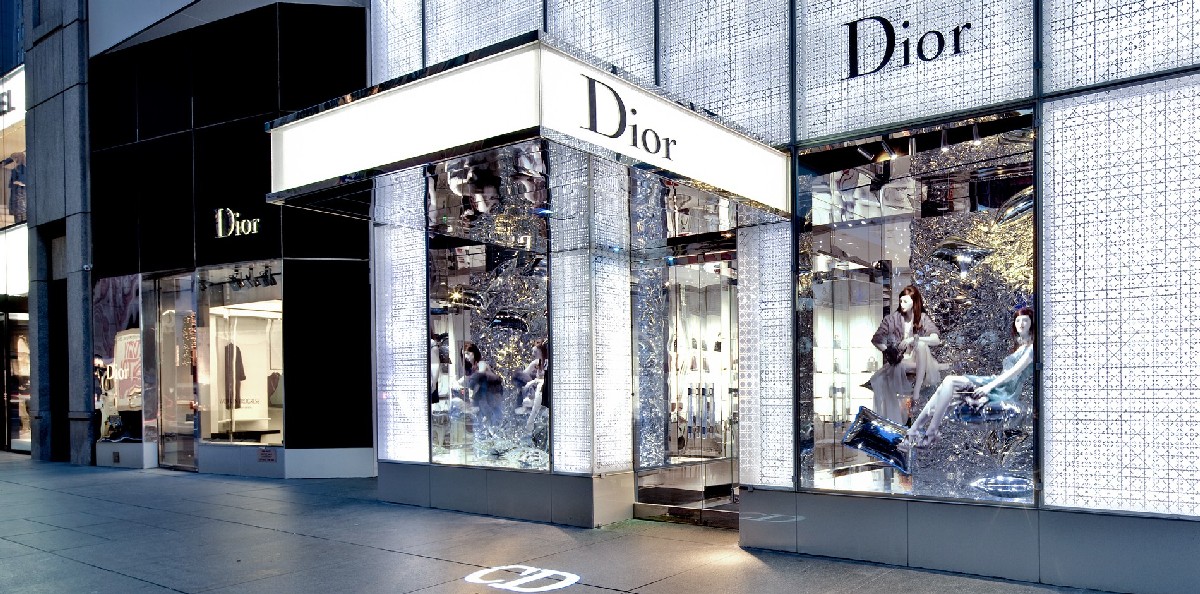
Respublika Park shopping mall presents documentary film about veteran Stepan Korobkin who conquered Kilimanjaro


 26.04.2017 12:47
26.04.2017 12:47Кожна акція паризького будинку моди Christian Dior обійдеться LVMH в $282, остаточно формальності будуть улагоджені у другій половині року.
New York Times, London.
The LVMH Moët Hennessy Louis Vuitton luxury empire and the French billionaire Bernard Arnault announced on Tuesday a series of moves to take over Christian Dior in a $13.1 billion deal to consolidate control over the 70-year-old Parisian fashion house.
The transaction would simplify LVMH’s relationship with Christian Dior by buying out minority shareholders. LVMH, the world’s biggest luxury group by revenue, already owns Parfums Christian Dior, and the deal would give it ownership of the Christian Dior haute couture, leather, men’s and women’s ready-to-wear, and shoe businesses.
As part of the proposal, one of the largest for the luxury goods conglomerate, the Arnault family offered to buy the 25.9 percent of Dior it does not already own. The family would hand over a mix of cash and Hermès shares, valuing Dior at 260 euros, or $282, a share, LVMH said. That represented a 15 percent premium over the closing price on Monday.
The LVMH fashion and leather goods division would then buy Christian Dior Couture for an enterprise value of €6.5 billion.
“The corresponding transactions will allow the simplification of the structures, long requested by the market, and the strengthening of LVMH’s fashion and leather goods division,” Mr. Arnault said in a statement. He added that the deal “illustrated the commitment of my family group and emphasizes its confidence” in LVMH’s long-term prospects.
Mr. Arnault laid his first claim to Christian Dior in 1984, when he bought Boussac, a textile group that included the Parisian fashion house and that was in bankruptcy protection at the time. Christian Dior soon became the cornerstone of Mr. Arnault’s luxury empire.
But the company was part of a complicated holding structure, making Dior a “sister” fashion brand to the many labels that Mr. Arnault bought via LVMH, including Berluti, Givenchy and Loro Piana. From the outside, however, Dior seemed to be part of the same family.
The Arnault family owns a 47 percent stake in LVMH, whose brands also include Céline and Fendi. The boards of Christian Dior and LVMH are unanimously in favor of the deals, the statement said, and they have appointed independent experts to review the terms.
LVMH’s offer to take over the Dior couture division will simplify ownership to an extent, but not entirely. The company called Christian Dior, which owns the brand’s couture business, will continue to exist and will own 41 percent of the share capital in LVMH, plus 56.8 percent of voting rights, making it the conglomerate’s controlling shareholder.
LVMH continues to outperform the wider luxury market, which has faltered in recent years in the face of fears of geopolitical conflict and currency fluctuations. Last month, rebounding demand for luxury goods in China and Europe pushed its first-quarter sales to €9.88 billion, a 15 percent increase over the same period a year earlier and far beyond estimates.
Analysts reacted positively to news of the deal with Christian Dior, which had long been expected by industry observers. The transaction is expected to close in the second half of this year, and it is projected to increase LVMH’s earnings per share within the first year of its completion, according to the statement announcing the agreement.
“The deal adds a strong brand to the LVMH portfolio at a reasonable valuation,” Luca Solca, managing director of luxury goods at Exane BNP Paribas, wrote in a note to investors.
Over the past five years, revenue at Christian Dior has doubled and profitability has improved. The brand named its first female creative director, Maria Grazia Chiuri, to much excitement last June. Though her collections have been met with lukewarm reviews, the brand reported revenue in excess of €2 billion and profit from recurring operations of €270 million for the 12 months ended March 31.
The Arnaults’ decision to offload Hermès shares comes nearly three years after the family received stock in the Paris-based luxury leather goods house after an effort by LVMH to build a stake in the company.





